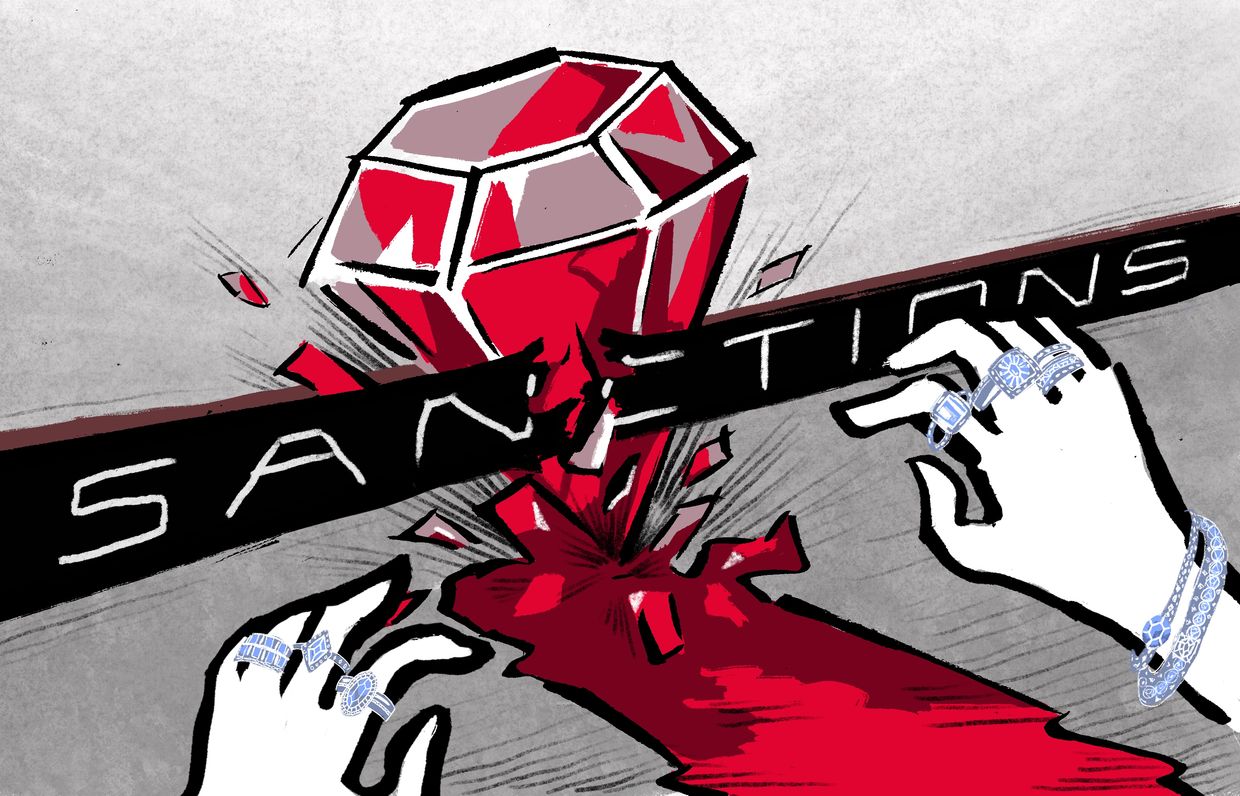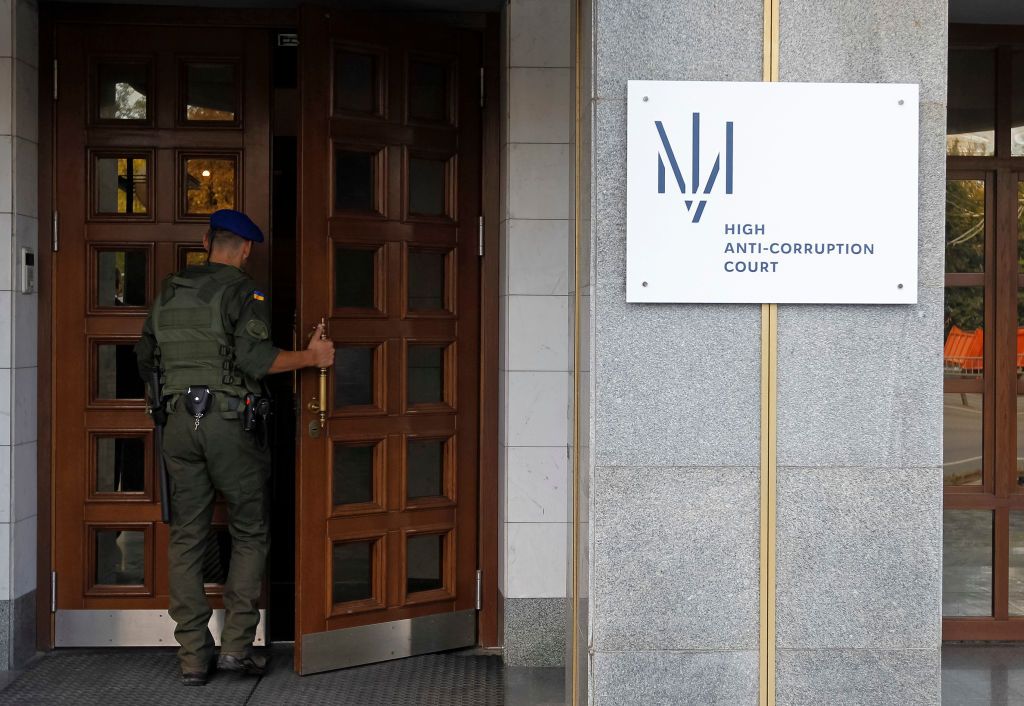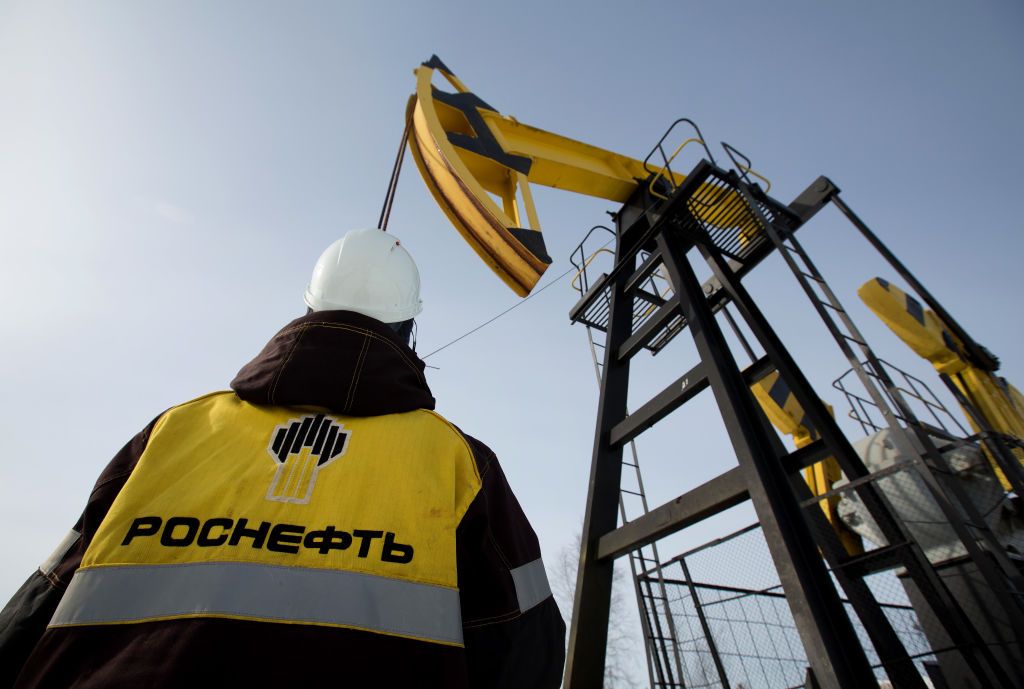By declining to include funding for Ukraine as part of the recent deal to avert a government shutdown, the U.S. Congress sent a signal of encouragement to Russian President Vladimir Putin. That makes tightening the price cap on Russian oil exports all the more important.
WASHINGTON, DC/CAMBRIDGE – Wars are won and lost on battlefields. But public finance plays a critical role in determining what the combatants can afford. This is particularly true for a long war, which is what Russia’s full-scale invasion of Ukraine has already become.
By declining to include funding for Ukraine as part of the recent deal to avert a government shutdown, the U.S. Congress sent a signal of encouragement to Russian President Vladimir Putin. Meanwhile, the increase in global oil prices (now above $90 per barrel) since July is providing new revenues for Russia’s war effort and a further psychological boost for the Kremlin.
To turn the tide back in favor of Ukraine, Congress needs to restore funding, a move supported by the Senate’s Democratic and Republican leaders, Chuck Schumer and Mitch McConnell, respectively. In addition, and just as important, the U.S. must take further steps to reduce Russia’s oil revenues.

John McCain, the late U.S. Senator and 2008 Republican presidential nominee, famously quipped that Russia is a gas station masquerading as a country. Even before February 2022, when Russia had full access to international markets, nearly half of government revenues came from energy taxes and energy exports. Now almost all foreign-exchange revenues come from oil exports.
The price cap on Russian oil, pioneered by U.S. Treasury Secretary Janet Yellen and introduced by a G7-led coalition in late 2022, was designed to reduce those revenues while keeping Russian oil on the market to hold world prices in check. An initial price cap of $60 per barrel was introduced in December 2022, with reports suggesting that countries were using the coming cap ahead of time to negotiate lower prices for Russian oil. Through the first half of 2023, the cap helped reduce the Kremlin’s revenues by 45% year on year. Many market participants hailed it as a success.
The price cap applies to shipments of Russian oil that use services from price cap coalition countries. For example, shipments that travel on Greek-owned ships, or are insured by UK insurers or re-insurers, must comply with the price cap. In the normal course of business, insurers and shippers do not always see the price for the oil they are insuring or carrying, so the G7 coalition devised a system to require a party to the transaction to provide an attestation that the price is below the cap.
Two things have happened in the past 10 months to make the price cap less binding. First, Russia acquired its own fleet of tankers, primarily older and in some cases damaged ships that were not seaworthy by international standards and thus not participating in the market. These tankers not only help Russia subvert the price cap; they also are more at risk of causing a catastrophic spill or other environmental disaster. Second, Russia is allegedly offering (or arranging) false attestations, dishonestly attesting to prices below the cap.
In response, some commentators have thrown up their hands and claimed that the price cap policy must be abandoned – a response that the Kremlin would greet with derision and delight. Just as markets adapt to new circumstances, so must policymakers. Three steps should be taken to increase the pressure on Russia’s oil revenues.
The first step is to tighten enforcement of the price cap and lean on shippers, insurers, and other service providers to screen for false attestations. If that is not enough, the U.S. should work with its partners and allies to impose transit fees to reduce the revenue going to Russia. The G7 coalition, for example, could set up a sort of tollbooth at crucial chokepoints – such as the Danish straits – that Russian oil tankers must traverse to reach global markets. The maritime tollbooth could then charge all Russian oil shipments the difference between the price cap and the current world market price. The shipper could then apply for a rebate of that amount, if all their paperwork is in order. For example, if the world oil price was $90 per barrel with the cap still at $60, the tax would be $30 per barrel – reimbursed only if the shipper can prove, beyond any reasonable doubt, that they only paid $60.
Economic logic suggests that, in this case, the tax would come out of Russia’s war chest and would not result in higher prices for buyers, because buyers can always switch to another supplier who is selling at world prices.
The tollbooth revenue could be used to fund Ukraine, help low-income countries bear the costs of higher oil prices, finance clean-energy investments in the developing world (reducing their need for fossil fuels), or help finance a cleanup fund in case Russia’s rusty oil tankers cause a spill (or all of the above). This approach would essentially use the toll to ensure that Russia takes home no more than the price cap for its oil shipments.

And in case this does not stop Russian oil sales at high prices, the U.S. could use secondary sanctions to target any transaction involving Russian oil above the price cap, regardless of whether it is carried on Russian, Cameroonian, or Greek ships and insured by British or Russian companies. Secondary sanctions would mean that any entity tied to a Russian oil shipment above the current $60 per barrel cap would risk losing the ability to engage with the U.S. financial system if caught.
Russia is earning fistfuls of money from its oil sales, and using the revenues to buy tanks, pay soldiers, and keep the war out of the minds of ordinary Russian citizens. High oil prices enable Putin to test Western democracies’ resolve, and the dysfunction on Capitol Hill plays into his hands.
That makes the price cap, and the extensions we have proposed, all the more important for reducing Putin’s ability to continue fighting. The G7 and its allies have the tools needed to undermine Russia’s war effort in a way that does not destabilize the world economy. It is time to use them.
Editor’s Note: Copyright, Project Syndicate. The following article was published by Project Syndicate on Oct. 4, 2023, and has been republished by the Kyiv Independent with permission. The opinions expressed in the op-ed section are those of the authors and do not purport to reflect the views of the Kyiv Independent.













